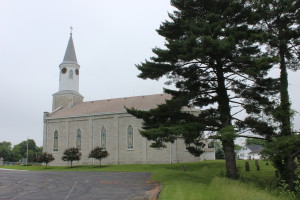A prophet is one who speaks for God. So I am a little perplexed why some have divided the Old Testament prophets into major and minor prophet. All of God’s words to us are important, not just those words spoken by well-known personages who wrote or spoke a lot, or who were more connected in their society. But like most Christians, I am much more familiar with Elijah, Elisha, Isaiah, and Jeremiah than with Zephaniah, Haggai, Zechariah, or Malachi.
The pastor of our church recently brought our attention to Habakkuk. After rereading the “minor” prophets again, I guess I am partial to Habakkuk because he asks questions of God.
Lord, how long shall I cry for help, and you will not hear?
Or cry to you Violence!” and you will not save?
Why do you make me see iniquity, and why do you idly look at wrong?
Destruction and violence are before me; strife and contention arise.
So the law is paralyzed, and justice never goes forth.
For the wicked surround the righteous; so justice goes forth perverted. (Habakkuk 1:2-4 ESV)
Habakkuk’s question is as valid today as when it was written. I know God’s answer to Habakkuk is that he is in control of everything that goes on in our world but that knowledge does not explain to us why God allows all this suffering on earth to continue. If he has some plan, he does not explain what that plan is. Or does he? As we have stated in this blog, God’s plan for us is to renovate our soul so it becomes like God. Is not that worth all the suffering we face?
For I consider that the sufferings of this present time are not worth comparing with the glory that is to be revealed to us. (Romans 8:18-19 ESV)


